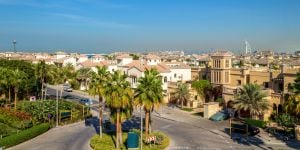
In the United Arab Emirates, you will find clinics, public and private hospitals, and primary healthcare centers. In Dubai, more specifically, the healthcare system is of high standards and offers modern facilities. Whether you make use of the public healthcare network or the private one, you can rest assured that your medical needs will be catered for. Healthcare workers come from different parts of the world and can provide the best possible care for you.
How the health system works in Dubai
The Dubai Health Authority (DHA) manages both the public and private healthcare networks in Dubai. For public hospitals, you have the choice of four leading hospitals: Dubai, Rashid, Latifa, and Al Kuwait. They offer emergency services as well as inpatient and outpatient services. English is widely spoken by the staff.
To have access to public hospitals, you will need your health card, which you should obtain upon your arrival in the UAE. You can apply online with the DHA or by visiting any of the primary healthcare centers or typing centers. You will be required to produce two passport-size pictures of yourself (with a white background), proof of employment, and a copy of your valid passport, as well as your Emirates ID (which you get once you obtain your resident visa). The fees for a health card are AED 320 for individuals who are 18 years and above and AED 120 for those who are 10 years old or younger.
Most expatriates prefer the private healthcare system as it offers them a wider range of medical services. That said, you might want to keep your health card handy anyway, just in case. Most companies include a comprehensive healthcare package with their employment offer, so make sure to double-check yours.
Compulsory health insurance
Since 2015, all foreign nationals living in Dubai have had to subscribe to minimum health insurance through the DHA. This measure is intended to eliminate any inequalities in the local healthcare system. The DHA started the Insurance System for Advancing Healthcare in Dubai (ISAHD) initiative to ensure all residents and visitors are provided with quality healthcare.
This compulsory health insurance provides coverage in case of emergencies, as well as for visits to a general practitioner, basic and comprehensive tests, and prescribed medication. It also applies to physiotherapy, maternity follow-ups, and surgical operations. Check with your employer regarding this. If you have domestic help, drivers, or nannies, you will be responsible for their health insurance as well.
Dubai Healthcare City
In Dubai, the government's strategy is to attract visitors to the UAE for medical and other wellness services. Dubai Healthcare City was founded in 2002 and is the world's largest healthcare-free zone. The second phase of the project welcomes wealthy locals, expats, and tourists alike for premium health services. This is also for the reason that locals and expats alike do not have to travel outside of the UAE to have access to outstanding healthcare abroad, such as in Europe.
Good to know:
Dubai hosts world-class hospitals providing high-quality health care. Some medical drugs are prohibited in Dubai. Check with the Ministry of Health of the United Arab Emirates before moving to Dubai.
To obtain your visa for Dubai, you must prove that your employer has already taken care of the formalities relating to the compulsory health insurance.
If you are not working for a company, you will have to apply for a health card at the Public Health Services Department. The health card is valid for a year and is renewable.
Important:
In case you do not require a visa to travel to Dubai, you are required to apply for your health card within 30 days following your arrival in the country.
Emergency numbers in Dubai:
Ambulance – 998;
Police – 999;
Fire brigade – 997.
Useful links:
We do our best to provide accurate and up to date information. However, if you have noticed any inaccuracies in this article, please let us know in the comments section below.











